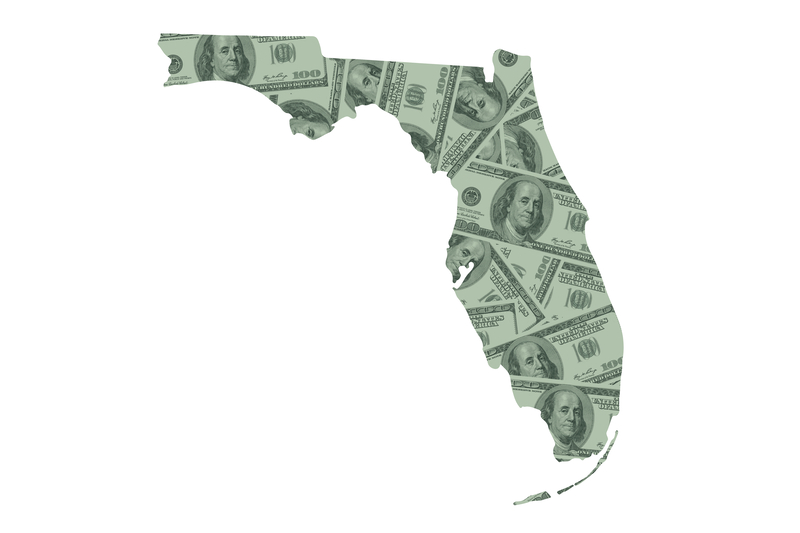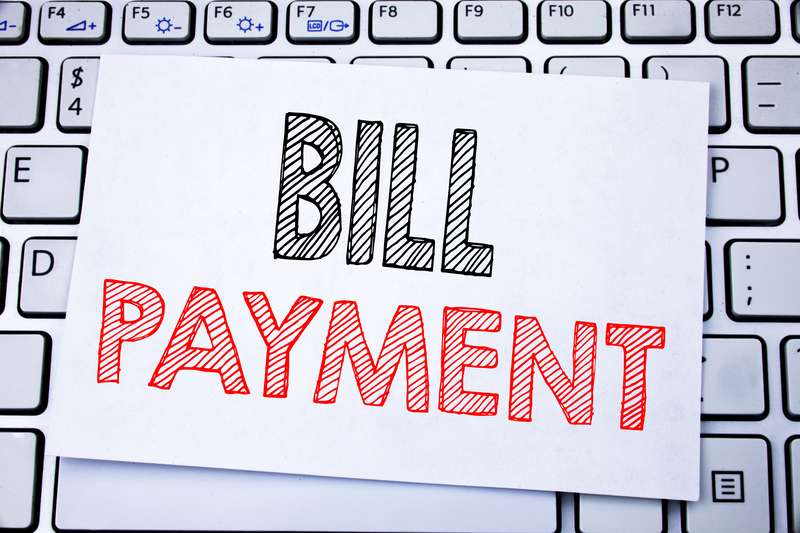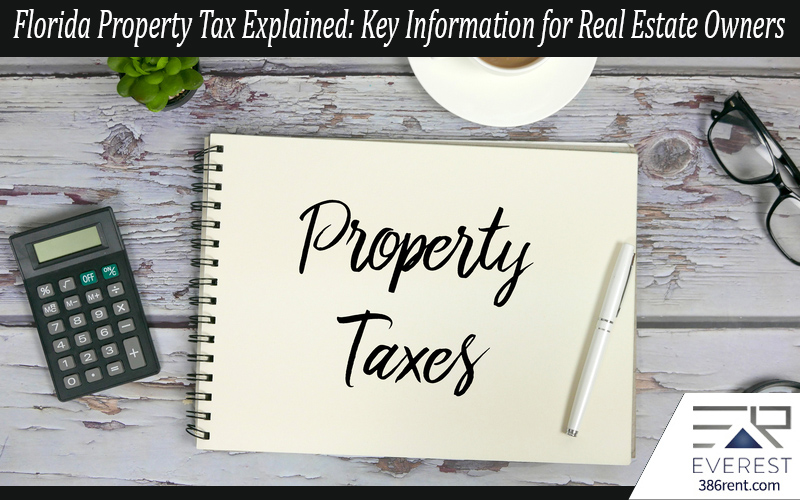Florida, the Sunshine State, is a paradise boasting stunning beaches, diverse gastronomy, rich cultural experiences, and all-year-round balmy weather. These attractions draw a multitude of prospective homeowners annually. However, a comprehensive understanding of Florida's property tax landscape is crucial before making an investment. This guide unravels what you need to grasp about property tax in Florida and its relevance to property owners.
Do Florida Homeowners Pay Property Taxes?
A notable allure of Florida is its lack of state income tax - an attractive proposition for many aspiring homeowners. However, the question often arises: are property taxes a reality in Florida?
The short answer is yes. Property taxes are levied based on the taxable value of homes or other properties. The revenues generated are instrumental in funding public amenities such as schools, libraries, roads, and essential infrastructure. Notably, certain entities like government institutions, schools, and churches are exempted from property taxes.
In Florida, the concept of a state property tax doesn't exist. Property owners pay their taxes to local municipalities, who also determine the tax rate. The oversight of these municipalities and counties falls under the purview of the Florida Department of Revenue.
Understanding the Cycle of Property Tax in Florida

The cycle of property tax determination and collection in Florida follows a structured approach.
1. Appraisal
The property tax cycle initiates with the appraisal of properties. This crucial step determines the property tax base and is executed annually by property appraisers designated for their respective counties. Post appraisal, these appraisers apply valid assessment limitations, classifications, and exemptions to reach each property's taxable value.
The Florida Department of Revenue plays a supervisory role in this process, reviewing each county's property tax roll to ensure compliance with state tax laws and approving each property appraiser's annual budget.
2. Florida Property Tax Rate
While property appraisers ascertain the tax base, they don't decide the property tax rate. The task of setting the millage or tax rate for the upcoming fiscal year is vested with locally elected officials, and the rate is applicable uniformly to all property types.
In this step, too, the Florida Department of Revenue plays an overseeing role, confirming that local government tax rates remain within legally stipulated caps.
3. Notice of TRIM (Truth-in-Millage)
Following rate determination, property appraisers dispatch a Notice of Proposed Property Taxes (commonly known as a TRIM notice) to each property owner. This notice includes the property's value as of January 1 and the proposed millage rate set by the local government, alongside the estimated property taxes owners are obliged to pay.
Importantly, the millage rate included in this notice is provisional. Property owners have the opportunity to comment on these rates at local government budget hearings, details of which are included in the notice.
4. Appeals
Subsequent to the TRIM notice, objections to the property's assessment, exemptions, and classifications are handled by the Value Adjustment Boards. These boards, comprising five members, function independently from property appraisers and tax collectors. Though they adjudicate objections, they don't have the authority to alter the property tax rate.
5. Billing and Payment

The annual property tax bills are usually dispatched to property owners by tax collectors in late October or early November. Owners are given until March 31 of the following year to fulfill their full payment. Early payments could qualify for discounts of up to 4%.
The following equations can be used to calculate property taxes:
Just Value – Assessment Limits = Assessed Value
Assessed Value – Exemptions = Taxable Value
Taxable Value x Millage Rate = Total Tax Liability
6. Collections and Refunds
Post the March 31 deadline, tax certificates are sold on properties that have defaulted on property taxes. These certificates aid in the collection of unpaid taxes. In case of persistent failure to clear all back taxes, fees, and interests within two years, a tax deed may be sold. Tax collectors also facilitate refunds in case of overpayments.
7. Funding
Finally, the property taxes paid by owners contribute significantly to public education and local services. In Florida, property taxes account for approximately 50% of public education's funding and 30% of local government funding.
Florida Capital Gains Tax on Real Estate

In addition to the annual property tax, you may be subject to the capital gains tax if you decide to sell your property. This tax is potentially levied on the profit generated from property sales. The profit is computed by deducting expenses from the revenue, with revenue being the sale price minus the purchase price. On selling a property, you are required to file a tax return with the Internal Revenue Service.
Rental Property Tax in Florida
Rental property owners must consider another tax type - the tax on rental income. This tax applies if the rental income leads to net profit, at which point a federal tax rate may apply.
Notably, short-term rentals, defined as those with rental periods of 6 months or less, attract a 6% sales tax in Florida. Typically, renters pay this tax, which is then remitted to the local government.
The Necessity for Professional Assistance
Understanding Florida's property tax cycle can be complex, particularly for rental property owners who may also need to manage taxes on rental income. Given these complexities, it's advisable to engage the services of a seasoned accountant or a property management company, both of whom can provide indispensable assistance.
If you’d like to talk more about property management, or you need help with Everest Property Management, please contact us at Everest Realty.




 As a top producing Realtor and Property Manager; Terry specializes in sales, extensive construction homes, rentals, REO’s, short sales, and all aspects of Real Estate. After graduating the University of Michigan with a master in MBA, Terry continued his endeavor and now has over 15+ years of experience in the Real Estate world. If there is anything that has to do with Real Estate and sales, you can always be sure of Terry to provide important, specialized knowledge.
As a top producing Realtor and Property Manager; Terry specializes in sales, extensive construction homes, rentals, REO’s, short sales, and all aspects of Real Estate. After graduating the University of Michigan with a master in MBA, Terry continued his endeavor and now has over 15+ years of experience in the Real Estate world. If there is anything that has to do with Real Estate and sales, you can always be sure of Terry to provide important, specialized knowledge.




